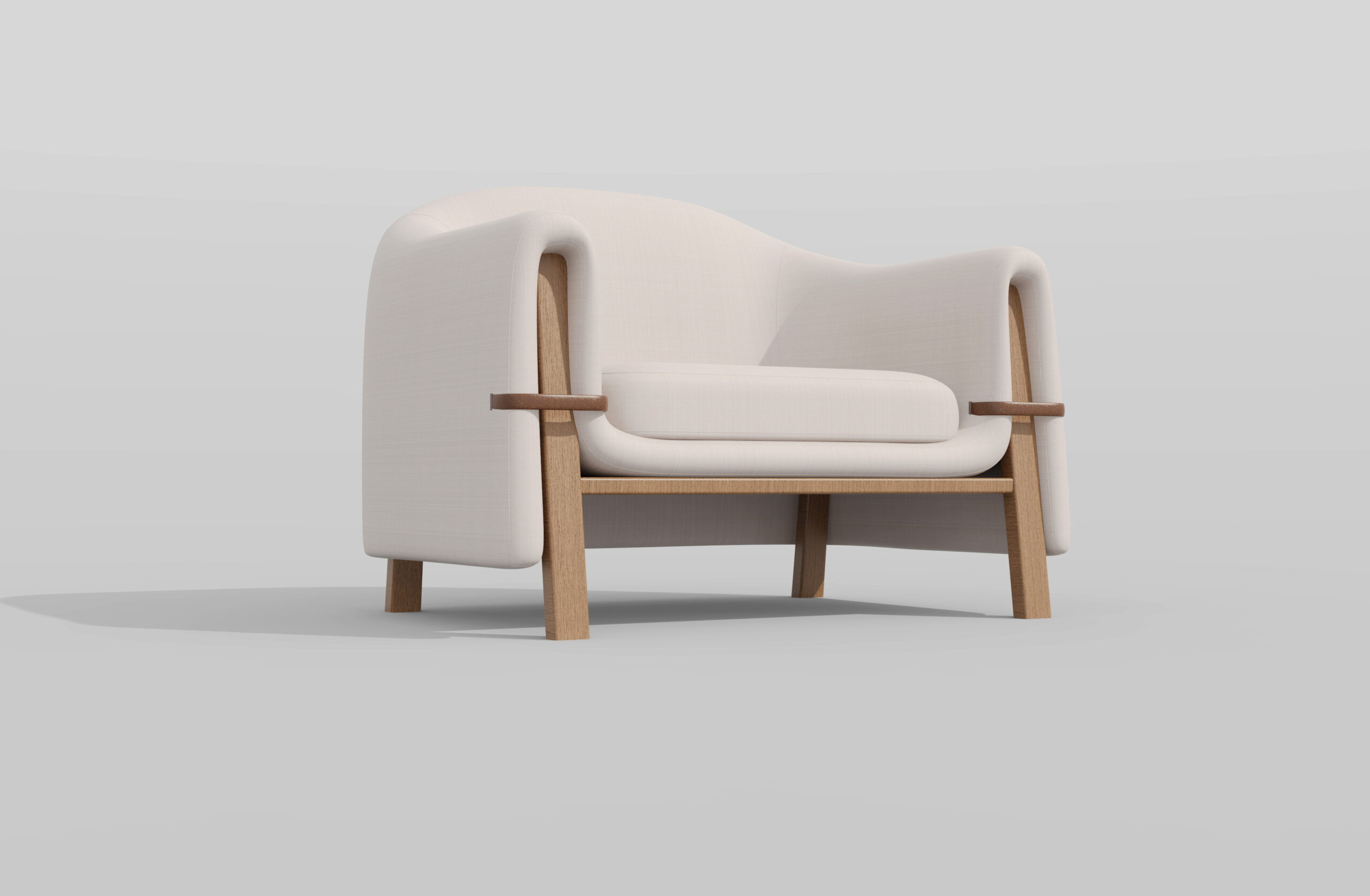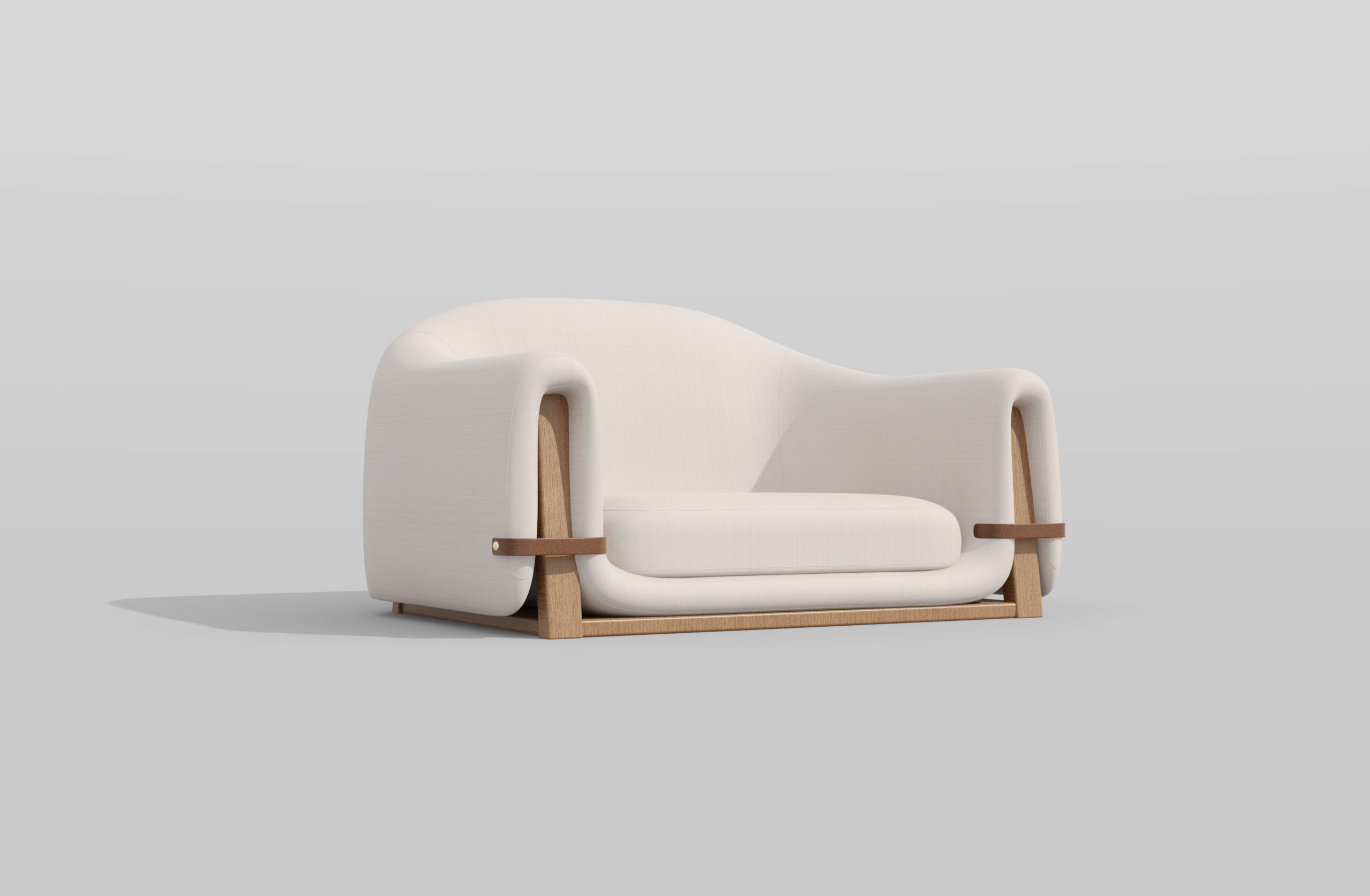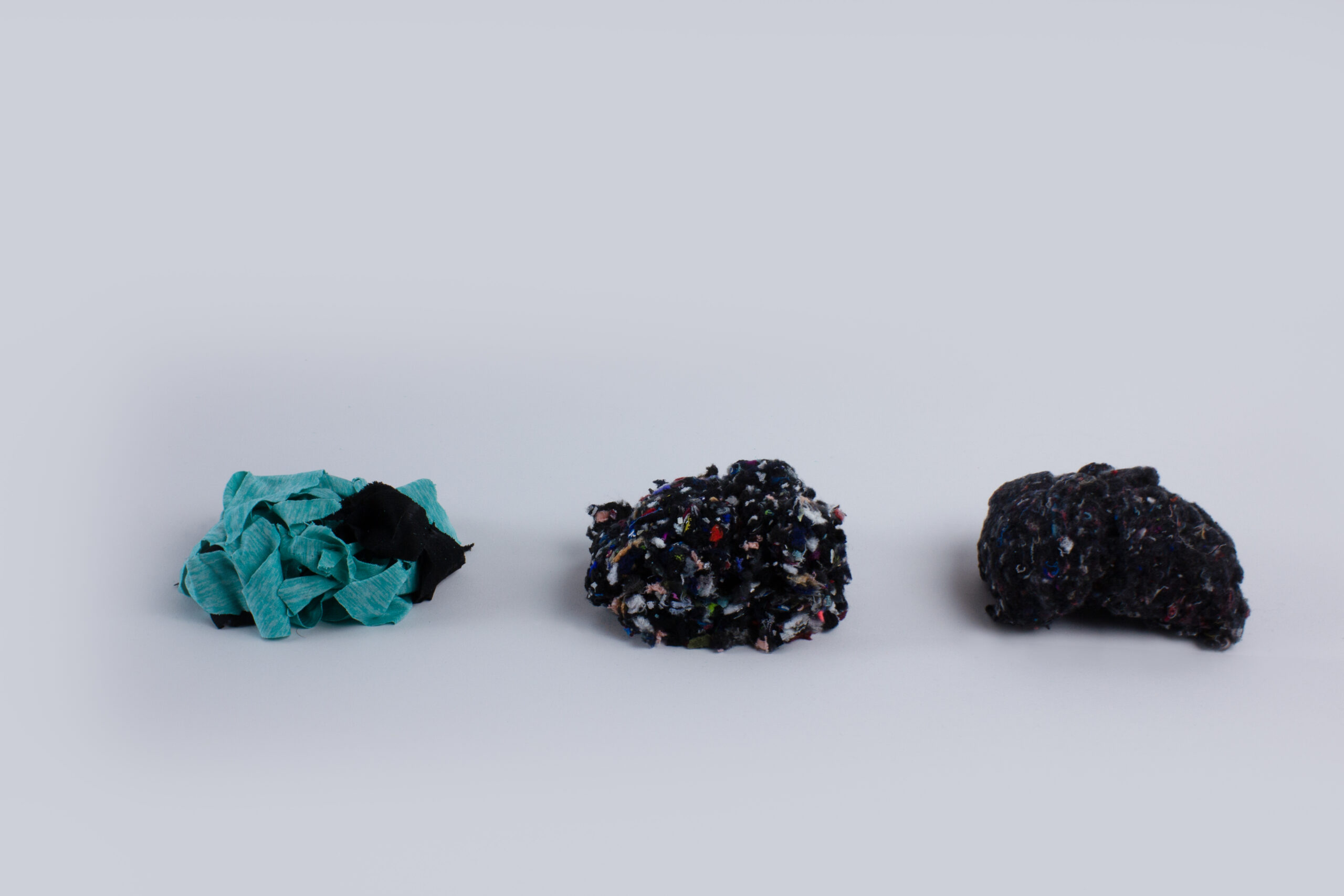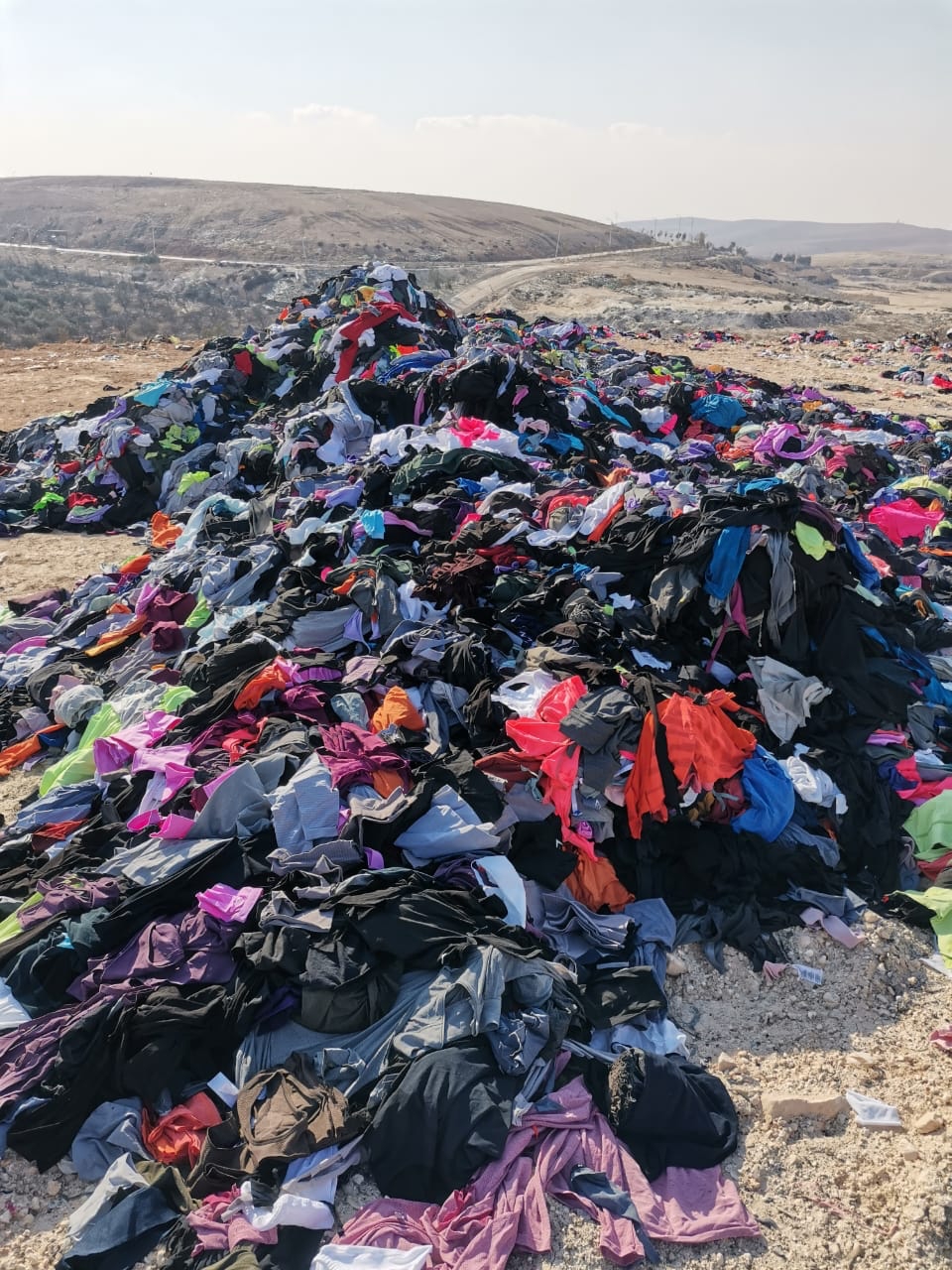In 2023, we launched an exciting fabric waste design project with GIZ Jordan. Our mission was to innovative new methods to reprocess fabric waste, turning it into demand driven, scalable products. Our solution was cutting edge and practical. Offering a real solution that can be realized on the ground with high market potential. The Lammeh contract furniture collection. stands as a shining example of how sustainable furniture design can redefine modern living spaces and solve real waste challenges. Inspired from the rich cultural heritage of the majlis with the principles of circular design, creating a line of furniture that’s eco-friendly and has international appeal.
Year
2023
Client
GIZ – GAIN Jordan
A furniture line inspired by the prevailing ethos of the Arab Majlis. This comprehensive collection has been elevated to cater to international tastes and features an innovative foam and Dacron alternative crafted from fabric waste; thus ensuring a sustainable and eco-friendly product. With a strong commitment to circularity, this collection has been thoughtfully designed for easy disassembly and end-of-life recyclability as well “Lammeh” is an Arabic word meaning ‘a gathering’. Reflecting the piles and piles of fabric waste it’s gathering and transforming into unique social spaces that gather people to connect. From cozy armchairs to stylish ottomans and modular sofas, the collection offers a range of seating options designed for optimal comfort and an immersive experience.
Jordan’s RMG and leather sector at Al Hassan Industrial Estate (HIE), the largest QIZ in the country, generates over 33 tons of daily waste, primarily cutting waste from synthetic garments, which is sent to the Ekeider Landfill due to restrictions under the Jordan-USA Free Trade Agreement.
The “Green Action in Enterprises” (GAIN) project – commissioned by the German Federal
Ministry for Economic Cooperation and Development (BMZ) and implemented by the Deutsche Gesellschaft für Internationale Zusammenarbeit (GIZ) GmbH, assigned us the task of developing a concept for a scalable and demand-driven product using fabric waste that is otherwise landfilled. This project was conducted in two phases: The first phase being product and market research, and the second phase, involves the creation of the concept. Our focus was on addressing three key challenges identified in the Jordan Economic Modernization Vision (JEMV) report: a high percentage of non-Jordanian workforce, basic activities with increasing costs, and a heavy reliance on imported raw materials.
Our methodology involved a multi-faceted approach starting with intensive desk research, leveraging previously conducted reports, along with primary quantitative and qualitative research. The research phase of our project involved interviewing experts in the industry and visiting manufacturing facilities related to our product. After this initial research, we focused on design approaches tailored to our specific market, contract furniture. We also conducted field visits to various furniture manufacturers to gain a thorough grasp of our potential and feasible market. Additionally, we utilized the design-thinking process to arrive at the ultimate concept for our project, Lammeh.
What truly sets “Lammeh” apart is its commitment to sustainability. Embracing a circular approach, we have developed a production process that allows for easy disassembly and recyclability. When a “Lammeh” piece reaches the end of its lifecycle, it can be effortlessly disassembled, and the fabric can be repurposed, minimizing waste and environmental impact.
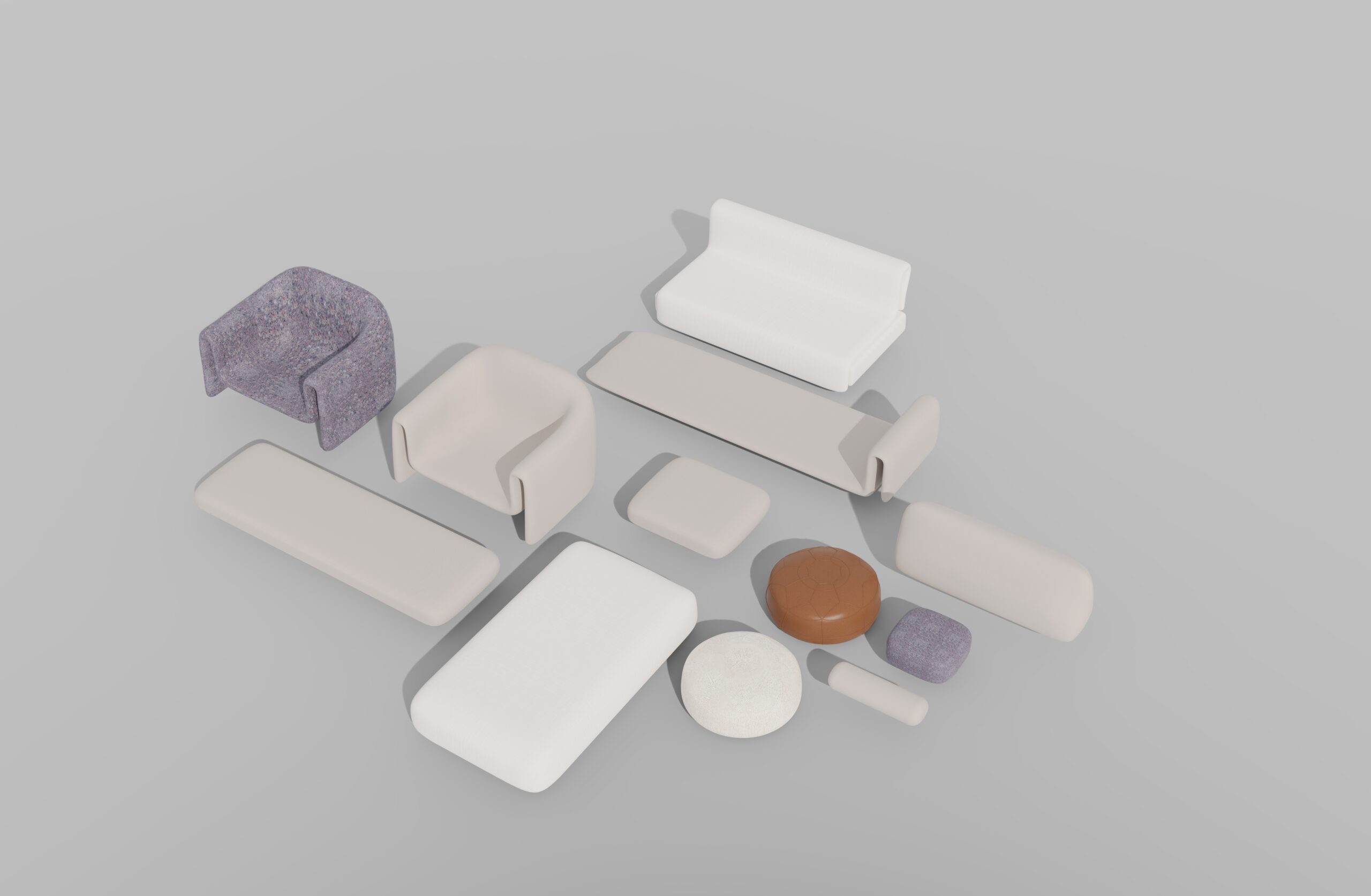
Lammeh with its curvilinear design, merges traditional heritage with a touch of contemporary flair, creating a versatile seating system that harmonizes ergonomics, usability, and circularity. The fabric waste is transformed into comfortable upholstery foam that is wrapped through beautiful drapes of fabric on a wooden frame. Connected together with leather straps and ties that allow for ease of disassembly. This allows seamless product upgrades for prolonged life cycles. A versatile system is integrated in the collection that can produce endless configurations and styles.
